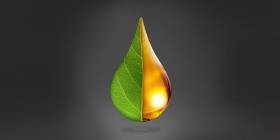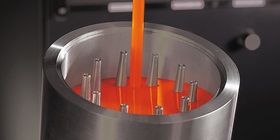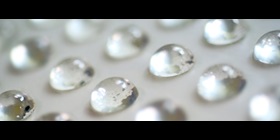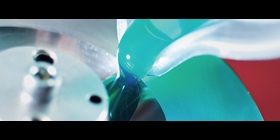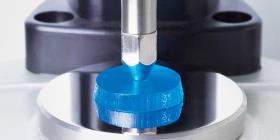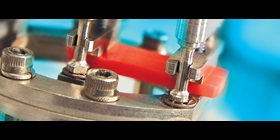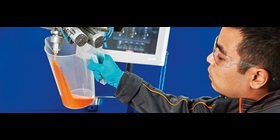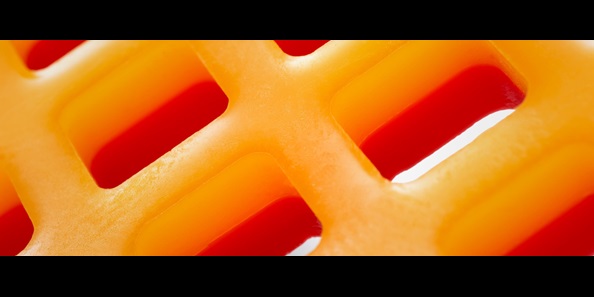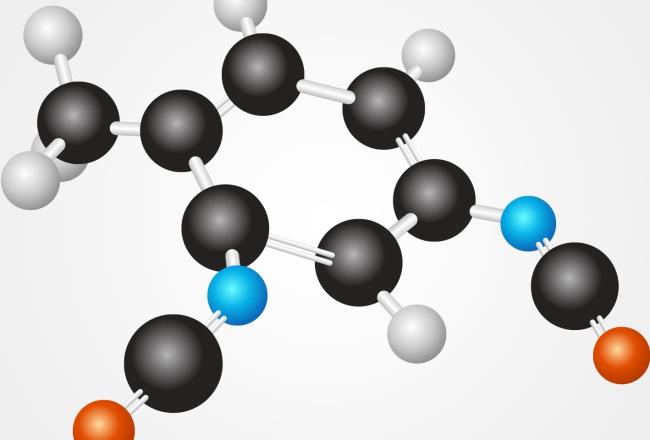
Technology
TDI prepolymers: Formulated to your requirements
Cast polyurethane elastomers provide advantages such as elasticity, a long service life and excellent wear resistance. Our polyurethane hot cast elastomers based on toluene diisocyanate (TDI) can be formulated with a wide range of mechanical properties including different hardness levels thanks to ester- or ether-based prepolymers.
Featured Brands
- Polyisocyanates for a wide range of PU foams, coatings and adhesives
Our Desmodur® TDI systems are conventional TDI-terminated prepolymers for cast polyurethane elastomers. They are processed using hot casting methods and include polyether- and polyester-based products, which are designed to be processed with various curatives.
Desmodur® TDI ether glycol (PTMEG) systems provide PU elastomers with excellent properties:
• Good abrasion resistance, high tensile strength and high resilience, even at low temperatures
• Good resistance to hydrolysis and microorganisms
• Low viscosities for easy processing
• Wide range of hardness levels from 80A to 80D
Desmodur® TDI ester systems offer a robust set of characteristics:
• High tear resistance
• Excellent dynamic properties
• Good chemical resistance
• Low compression set
• Hardness levels ranging from 80 to 95 Shore A
Specialty Desmodur® TDI ester systems are available with:
• Lower viscosities for easier processing
• 20 to 58 Shore A hardness for very aggressive environments
• Good resistance to both water and hydrocarbons
Desmodur® TDI ether glycol (PTMEG) systems provide PU elastomers with excellent properties:
• Good abrasion resistance, high tensile strength and high resilience, even at low temperatures
• Good resistance to hydrolysis and microorganisms
• Low viscosities for easy processing
• Wide range of hardness levels from 80A to 80D
Desmodur® TDI ester systems offer a robust set of characteristics:
• High tear resistance
• Excellent dynamic properties
• Good chemical resistance
• Low compression set
• Hardness levels ranging from 80 to 95 Shore A
Specialty Desmodur® TDI ester systems are available with:
• Lower viscosities for easier processing
• 20 to 58 Shore A hardness for very aggressive environments
• Good resistance to both water and hydrocarbons
Low unreacted TDI-based systems
Additionally, we offer Desmodur® systems with a low unreacted TDI content in both ether and ester versions. Besides H&S benefits, the lower viscosities and longer pot lives of these solutions enable easier processing and improved performance for a wide variety of cast parts.With our extensive expertise in polyurethane chemistry and our broad portfolio of Desmodur® systems, we can help you find the best prepolymer technologies for your applications.
TDI polyether-based systems: For excellent physical & mechanical properties
Our Desmodur® line of TDI-based prepolymers involves various polyether polyols such as polypropylene glycol (PPG), polytetramethylene ether glycol (PTMEG) as well as a number of unconventional polyols. We also offer Desmodur® prepolymers with a low unreacted TDI monomer content (Desmodur® LU-T).
Desmodur® TDI polyether-based prepolymers are designed to be processed with various amine curatives. The polyether-based prepolymers are particularly well-suited to applications requiring excellent overall physical and mechanical properties. They are characterized by good abrasion resistance, high tensile strength and resilience, even at low temperatures, as well as good resistance to hydrolysis (water, acid and base) and micro-organisms. They offer low viscosity and easy processing characteristics. With these systems, a wide range of hardness levels (from 80A to 80D) can be achieved to satisfy the demands of multiple applications.
Desmodur® TDI polyether-based prepolymers are designed to be processed with various amine curatives. The polyether-based prepolymers are particularly well-suited to applications requiring excellent overall physical and mechanical properties. They are characterized by good abrasion resistance, high tensile strength and resilience, even at low temperatures, as well as good resistance to hydrolysis (water, acid and base) and micro-organisms. They offer low viscosity and easy processing characteristics. With these systems, a wide range of hardness levels (from 80A to 80D) can be achieved to satisfy the demands of multiple applications.











